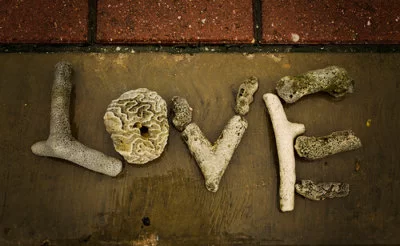What Type of Therapy Can Help You Find and Keep a Relationship?

By: Boris Kasimov
by Andrea M. Darcy
No therapy can guarantee you’ll suddenly attract the partner of your dreams.
But all types of counselling and psychotherapy are designed to help you feel more at ease with yourself and others. This is definitely helpful if you want to find a relationship.
Even better, there are actually types of therapy you can try that focus almost exclusively on your relationships and ways of being around others.
[Curious about the exact ways that therapy helps you find a relationship that lasts? Read more in our connected article, “5 Ways Therapy Helps You Find and Keep Love.” ]
The types of therapy that focus on relationships
Below you’ll find both short-term and long-term forms of therapy that help you find and keep a relationship.
Not sure which one you need? Read our article on “Long or short-term therapy – 7 Questions to Ask Yourself First.”
Remember, you can always try a short-term type first, then commit to a longer-form later if required. What matters is not putting off seeking the support you need.
If you suspect or know that your relationship difficulties are due to borderline personality disorder, though, it becomes more about choosing a therapy designed for this issue, as listed below.
Short-term therapies that help you with relationships
Cognitive analytic therapy (CAT)

By: JD Hancock
Cognitive analytic therapy is a time-limited therapy that focuses on your patterns or relating with family, friends, colleagues and loved ones. How are these patterns affecting your wellbeing and self-confidence?
Using elements of both cognitive behavioural therapy and psychoanalysis, it helps you recognise and change ways of thinking and acting, but also looks to your past to discover how these habits developed.
CAT aims to be more client-friendly, personal and flexible than other forms of therapy. So it has a focus on the client not being a ‘patient’ but rather a collaborator, and lets you decide your own goals for therapy.
CAT therapy hones in on:
- how your problems and challenges are relational
- how you relate to others and yourself
- what you want to get out of therapy and change in your life
- how your relationship with your therapist is a blueprint of your issues
- what new ways of relating you can try out in the safe space of the therapy room, free of feeling rejected or judged.
It is an evidence-based therapy (proven by research to be effective) for borderline personality disorder (BPD). It can help anyone who struggles in relationships, including those who have a past history of trauma, neglect or abuse, or who struggle with sexual problems.
Read our comprehensive article, “What is Cognitive Analytic Therapy?“, for a more detailed overview.
Dynamic Interpersonal Therapy (DIT)
Dynamic interpersonal therapy (DIT) believes that the way we relate to others causes our low moods, and that these ways of relating were learned in childhood. By identifying our habits of relating and working to learn new ways of dealing with others, we improve our wellbeing.
It is the other short-term therapy for relationship issues, often offered in a course of sixteen sessions. It rises from psychodynamic therapy, and unlike CAT, dynamic interpersonal therapy is very structured.
DIT looks at things like:
- your ways of attaching to others
- your distorted thinking that causes you problems
- the core ‘pattern’ of relating you learnt and are using
- how all this affects your moods.
It is recommended for relationship issues as well as depression and anxiety.
Read more in our article, “What is Dynamic Interpersonal Therapy?”.
Long-term therapies that help with relationships
Schema therapy

By: David Nguyen
Schema therapy was created to help those with long-term issues that other therapies didn’t seem to help, such as those with personality disorders.
It combines elements of cognitive therapy with psychodynamic therapy, Gestalt therapy, and attachment theory.
Schema therapy does the following:
- identifies your self-defeating patterns of behaving and relating
- looks to your childhood to see where these patterns come from
- dives deep into your unconscious to help you unearth and process old emotions
- teaches you practical ways to make better decisions in the future
- uses the client/therapist relationship to stand in for the parent you never had.
Schema therapy is particularly recommended if you tend to have very intense relationships that fall apart one after the other, or have been diagnosed with borderline personality disorder (BPD) or any other personality disorder. But it also helps with relationship problems in general, including things like fear of intimacy, low self-esteem, and anger management.
Read more in our article “What is Schema Therapy?”.
Dialectical behaviour therapy (DBT)
Dialectical behaviour therapy (DBT) centres on the idea that some people, either due to genetics or the environments they grew up in, are more emotional than others. They feel things more quickly and more intensely than others. This makes relationships difficult.
Dialectical behaviour therapy combines cognitive behavioural techniques with mindfulness.
Like schema therapy, it was designed for those who were resistant to others forms of therapy and who might suffer from personality disorders that see them struggle to relate to others.
Dialectical therapy helps you to:
- reduce your desire to hurt yourself
- raise your self-respect
- manage your emotions more effectively
- learn behavioural skills that make relating to others easier.
It is particularly helpful for borderline personality disorder (BPD). It is also recommended for those whose relationship issues stem from childhood sexual abuse, or who have a habit of self-harming or addictive behaviours.
Read more on our page about dialectical behaviour therapy.
Would you like to talk to someone about trying one of these therapies? Harley Therapy connects you to just such therapists here in London, UK. Not in England? Consider online counselling, help that goes where you go.
Have a question about therapy that helps you find a relationship? Or want to share an experience with our readers? Use our public comment box below.
 Andrea M. Darcy is a mental health and wellbeing expert and a popular psychology writer. She also runs a consultancy helping people find their perfect therapy and type of therapist. Follow her on Instagram for useful life tips @am_darcy
Andrea M. Darcy is a mental health and wellbeing expert and a popular psychology writer. She also runs a consultancy helping people find their perfect therapy and type of therapist. Follow her on Instagram for useful life tips @am_darcy





HI there, I’ve been watching [deleted] videos on narcicism and I have so many of the traits. I’m unable to love and have never been in love. I’m 34 and have not a lot to show for myself. Uneducated, have only a couple friends who are in other countries. Anyway, I’m desperate to find a therapist who can help. Any ideas or suggestions? Many thanks
Hi Richard, we would be extremely wary of thinking that ‘expert’ you mentioned is the be all and end all of info on this subject. We suggest you read our article, ‘Is He or She REALLY a Narcissist’? https://www.harleytherapy.co.uk/counselling/what-is-a-narcissist.htm. We all at some point or another, by the way, exhibit narcissistic ‘traits’. Humans are inherently selfish. But to truly have narcissistic personality disorder is a much different story. We’d also point out that not having many friends and being hard on yourself can also be the end result of childhood trauma and low self-esteem. Furthermore, a true narcissist is very unlikely to be researching it, would never call himself desperate, and would certainly not leave his name on such a comment. Lack of education by the way has nothing to do with narcissism. In summary, you sound very lonely, very hard on yourself, and like you have issues with intimacy and connection. Our best piece of advice is, cut yourself some slack. Before self diagnosing, see a therapist, that is the one idea we do agree with. You could book immediately with a psychiatrist (only a psychiatrist can officially diagnose a personality disorder) and he or she can diagnose then advise treatment. Or you could reverse the approach, book at a cheaper price with a psychotherapist, who can give you an informed opinion and actually help you with low self-esteem and connecting with others. If they think you need a psychiatrist they can then refer you. Seek a therapist with ‘personality disorders’ listed under their experience. As for what therapy will suit you, it can be like dating. Learn the different approaches and then try a therapist you feel you could grow to trust over time (if you have relating issues, don’t expect to like him or her right away, give it time). Use our search bar to find articles on how to find a therapist and on the different types of therapy. We wish you courage!